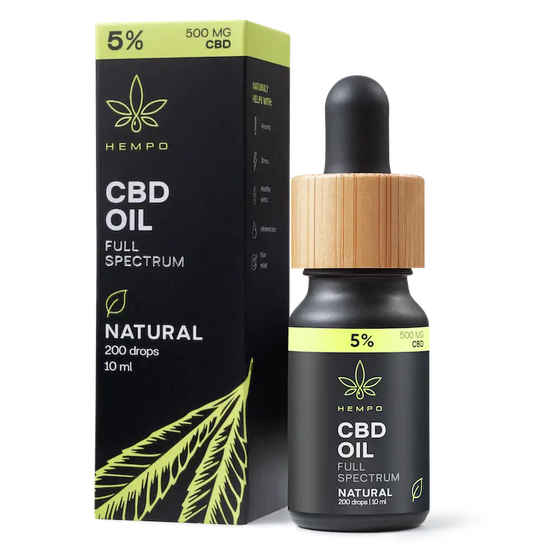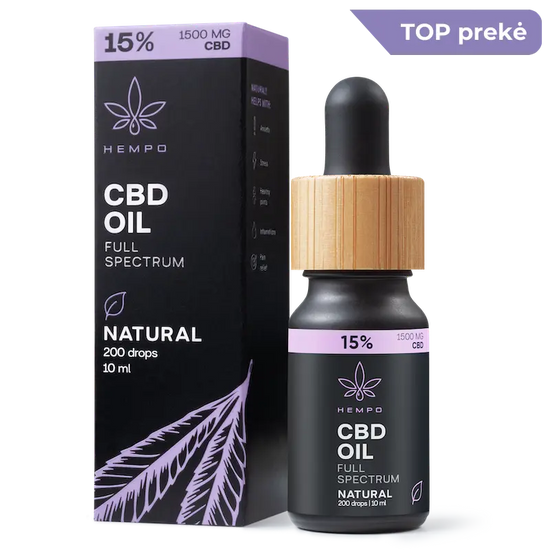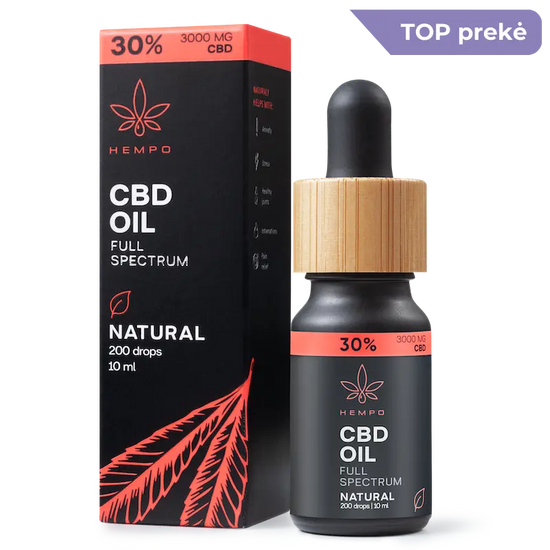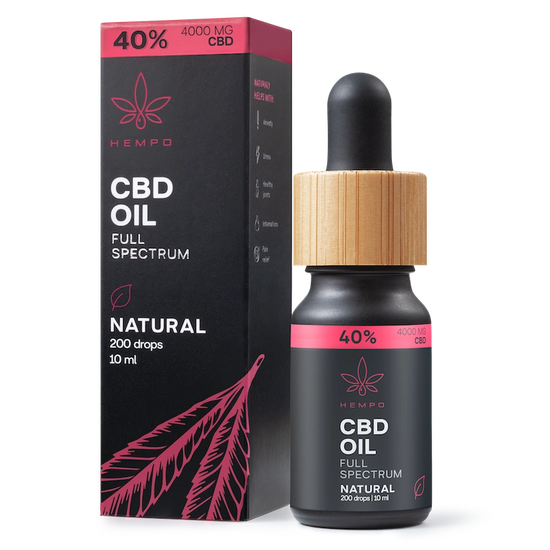How is CBD oil made? From cultivation to extraction
Have you ever wondered how CBD oil is made? How does a simple plant like seed hemp turn into a rich, healing oil? The production process of CBD oil begins with specially selected and carefully cultivated hemp, grown in accordance with the highest quality standards. Advanced CBD extraction methods are used during this process to ensure the purity and effectiveness of the CBD oil.
By understanding the entire process, you will be able to properly appreciate the amount of care, precision and scientific excellence required to produce a high-quality CBD product. Hempo takes this process seriously. We grow our genetically special hemp in Switzerland and use the most advanced extraction methods to produce the highest quality products. Find out how we do it.
Table of Contents

Hemp cultivation
Getting to know the CBD oil production process must start at the first level - the seed hemp itself. The type of hemp used has a particularly strong influence on the quality of the final CBD product. Unlike many producers who use simple fiber hemp that produces medium quality cannabidiol (CBD), Hempo prefers strains with a special genetic profile that matures a greater variety of cannabinoids, such as CBN, CBG, CBC, making the CBD product much more effective.
Our hemp is grown in a specially adapted environment in Switzerland to the highest quality standards. While some growers may prefer the convenience of mechanized harvesting, we believe nothing beats human hands. Each plant is carefully hand-picked by our skilled workers when it is ripe enough to ensure that only the highest quality hemp reaches the extraction stage.
Two-step extraction process
Once the hemp is harvested, the CBD extraction process begins. There are many ways to extract CBD oil from hemp, and each has its own advantages and disadvantages. One of the most common methods is solvent extraction, where substances such as ethanol or butane are used to extract the cannabinoids. However, this method can leave residual solvents that can affect the purity of the CBD oil.
To answer the question of how CBD oil is made, Hempo takes a more subtle approach. We employ a two-step CO2 extraction process that begins with subcritical extraction. At this stage, the hemp is exposed to low temperature and pressure conditions, thus extracting the sensitive terpenes without damaging their structure. For the uninitiated, we explain that terpenes are organic compounds that give hemp its characteristic aroma and contribute to the "Entourage Effect" created by our CBD products.
The second stage of the extraction process uses supercritical CO2 extraction. This method uses high temperature and pressure to extract the remaining compounds from the hemp, including the much-desired CBD. The process is highly efficient and leaves no solvent residue, making it the industry's gold standard.
In order to fully understand how CBD oil is produced, it is important to familiarize yourself with the post-extraction procedures. After extraction, raw CBD oil is decarboxylated (a heating process that activates the cannabinoids). The oil is then filtered to remove any remaining plant matter, resulting in a pure, high-quality CBD product that is ready to use or blend into a variety of products.
Hempo prides itself on this meticulous process, which ensures that every drop of CBD oil provides the maximum benefit. This commitment to quality helps us produce premium CBD products that stand out in a crowded market.
Of course, we can't help but think about the costs. It's true that Hempo's high standards and meticulous processes are reflected in our CBD oil pricing. Quality comes at a price, and advanced two-stage CO2 extraction methods, genetically special hemp, careful hand-picking in Switzerland and rigorous post-extraction procedures influence the price. You will definitely find cheaper CBD oils on the market, but keep in mind that their effects may be weaker. Cheaper oils are often made using cheaper extraction methods or from poor to average quality hemp, which can compromise the purity and potency of the CBD oil. By purchasing Hempo's high-quality CBD products, you are essentially investing in your well-being and ensuring that you receive the maximum benefits of CBD. Quality is priceless and that is the Hempo guarantee.
Supercritical CO2 extraction method
When it comes to how CBD oil is produced, it is important to note that the supercritical CO2 extraction method is considered one of the most advanced, widely used in various industries, and especially for the production of high-quality CBD oil. The supercritical CO2 extraction method is known for its efficiency and is valued for its environmental friendliness, as carbon dioxide is stored under high pressure and temperature conditions during this process. During this process, the aggregate state of CO2 balances between liquid and gaseous, which allows this substance to become an extremely effective solvent for extracting beneficial compounds.
When considering how CBD oil is produced, it is important to mention that the supercritical CO2 extraction method excels in its ability to preserve the purity and quality of the extracted CBD. The supercritical CO2 extraction method, also known as high-pressure CO2 extraction, helps avoid harmful chemicals and heavy metals in CBD products, ensuring a natural end product. The supercritical CO2 extraction method is characterized by high efficiency, as it allows the extraction of more beneficial compounds in a shorter time compared to other CBD extraction methods.
To understand how CBD oil is produced, it is important not to forget the full-spectrum supercritical CO2 extraction of CBD oil - this CBD extraction method extracts a wide range of cannabinoids, terpenes and other beneficial spectrum of compounds, making the resulting full-spectrum CBD oil more effective. The supercritical CO2 extraction method is a testament to technological progress - it enables sustainable and safe extraction of high-quality CBD extracts.
Alcohol extraction
When considering how CBD oil is produced, alcohol extraction is also worth looking into. Alcohol extraction is a widely used method of extracting natural compounds, sometimes used in the production of CBD oil. Alcohol extraction, which often involves the use of ethanol, is valued for its efficiency and simplicity. When delving into how CBD oil is produced, it is important to mention that ethanol extraction stands out for its ability to extract many different cannabinoids and terpenes that influence the effectiveness of CBD products. Until now, it is debated which method of CBD extraction is more effective - alcohol extraction or CO2 extraction, but it is important to mention that both of these methods have both advantages and disadvantages. CO2 extraction is known for its precision and safety, while alcohol extraction is known for its cost-effectiveness and scalability, which are especially important for CBD manufacturers in high-volume production.
Alcohol extraction can also produce a full-spectrum CBD oil with exceptional cannabinoid content , and the effectiveness of this method is further enhanced by cold ethanol extraction of CBD. Lowering the temperature during alcohol extraction ensures a cleaner composition of CBD products, as it also reduces the chance of unwanted compounds such as chlorophyll being extracted, resulting in a purer CBD product.
In summary, alcohol extraction, more specifically ethanol extraction, is crucial to understanding how CBD oil is produced. This method strikes a balance between potency, purity and ease of production for CBD products. As the industry evolves, continued improvements in CBD extraction methods, such as alcohol extraction, will further improve the quality and efficacy of CBD products.
CBD Testing
CBD testing is a very important process to ensure the quality and safety of CBD oil. In order to understand how CBD oil is made, one should first understand the importance of CBD testing. First of all, during the production of CBD, cannabinoids are extracted from the hemp plant, which are then mixed with a carrier oil - usually MCT coconut oil. However, strict CBD testing protocols must be followed to ensure the pure composition of CBD products.
Third-party laboratory testing of CBD plays an important role in the market for CBD products, as they allow unbiased verification of the composition of these products. These independent laboratories analyze the amount of cannabinoids in CBD products, ensuring that the composition of the products that the manufacturer declares on their product labels actually corresponds to what is in each of these products. When delving into how CBD oil is made, it's important to understand that CBD testing is vital for both consumer safety and industry credibility.
Another important aspect of CBD testing is CBD potency testing, which determines the exact concentration of CBD and other cannabinoids in a product. This testing is very important to consumers looking for CBD products that can provide therapeutic effects, as well as to ensure accurate CBD dosage.
Cannabinoid analysis, which can also be performed during CBD testing, is more in-depth - this comprehensive analysis examines the full range of cannabinoids present in the product. This not only determines the exact amount of CBD in the product, but also identifies other cannabinoids, terpenes or possible contaminants in CBD products.
It is important to understand that CBD testing is directly related to the quality control of these products, which ensures high quality standards for the final product. Control of CBD products also makes sure that they do not contain harmful substances such as heavy metals, pesticides and solvents, or that the THC content of CBD products does not exceed the legal limit.
In summary, CBD testing, which includes third-party lab testing, potency testing of CBD products, cannabinoid analysis, and quality control in general, is critical to understanding how CBD oil is made. CBD testing ensures the safety of consumers, the efficacy of CBD products, and regulatory compliance, and is therefore an integral part of the CBD industry.
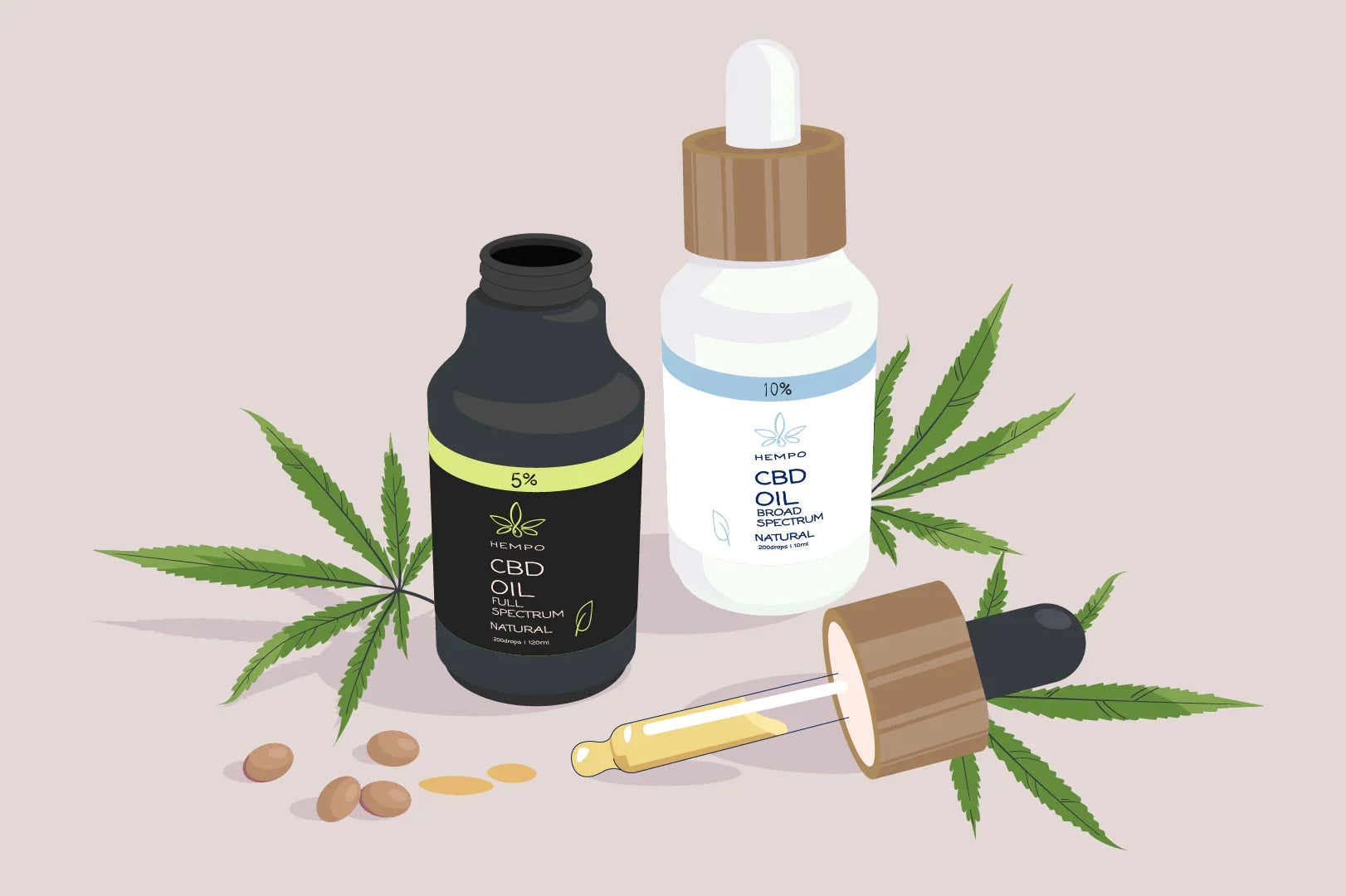
How is CBD isolate made?
CBD isolate is a pure form of cannabidiol extracted through a careful process. When delving into how CBD isolate is produced, it is important to mention that it all starts with the extraction of CBD from the hemp plant, usually using a CO2 extraction method to ensure the purity and potency of the CBD isolate. This initial process usually produces full-spectrum CBD oil, which contains all the cannabinoids and terpenes found in the hemp plant.
Differences between the production of CBD isolate and other CBD types are revealed in the following steps. In the production of pure CBD isolate, the extracted oil is further refined to remove all other compounds, leaving only CBD (cannabidiol). This process involves several steps of filtration and solvent washing. The result is over 99% pure CBD crystals or powder.
When considering how CBD oil is made and comparing CBD isolate and full-spectrum CBD oil, the main differences lie in the composition of these compounds. Full-spectrum products contain a variety of cannabinoids (e.g. CBD, CBN, CBG, CBC) and terpenes, while CBD isolate is pure CBD that also does not contain THC. CBD isolate can be an ideal choice for those who want to avoid THC altogether or are sensitive to other cannabinoids.
The benefits of CBD isolate lie in its purity and versatility. Since CBD is odorless and tasteless, it is quite easy to add it to various products without changing their taste and aroma.
To summarize how CBD isolate is produced, the production of CBD isolate involves extracting CBD oil from the hemp plant and purifying it to remove all other cannabinoids from the CBD oil composition. It should be noted that CBD isolate does not have an "Entourage effect" because it contains only CBD, so people usually choose other forms of CBD, such as full-spectrum or broad-spectrum CBD products.
How is THC-free hemp extract made?
The process of producing a THC-free hemp extract begins with the selection of a strain of hemp that is naturally lower in THC, thus ensuring an initial minimum amount of THC in the hemp extract. This is a crucial step in the process of producing not only THC-free hemp extract, but also CBD oil.
In order to understand how THC-free hemp extract is produced, it is necessary to understand the different methods of CBD extraction - supercritical CO2 or ethanol extraction is usually chosen, thanks to which the cannabinoids are effectively isolated, while also reducing the THC content. These methods are integral to hemp extract without THC extraction, as they are based on the preservation of beneficial cannabinoids and the removal of THC.
Later in the production of THC-free hemp extract, various other methods are used, such as distillation, which removes all unwanted compounds from the CBD extract, preserving the most important cannabinoids and terpenes.
To completely remove THC from the hemp itself, other processes can be used, such as chromatography. This advanced cannabinoid separation process carefully separates THC from the hemp extract, ensuring a final product without any traces of THC.
In summary, it can be said that the production of THC-free hemp extract involves the careful extraction of the plant itself, i.e. hemp selection, the right choice of extraction methods and careful refining processes, including advanced cannabinoid separation methods. All of these processes help ensure the production of high-quality THC-free hemp products.
Summary
Now that we've answered the question of how CBD oil is made, you can properly appreciate the science, care, and expertise that goes into making your favorite products. Hempo's commitment to quality covers all stages of production: from the genetically special hemp handpicked in Switzerland to the two-stage CO 2 extraction process. When you choose Hempo, you're choosing a CBD product that's carefully crafted with nature in mind and your well-being in mind.
The next time you use one of our CBD products, take a moment to think about how CBD oil is made, and enjoy the unparalleled quality Hempo brings to your wellness journey. Not only is CBD important, but so is the art and science of creating it. This is the distinguishing feature of Hempo.


